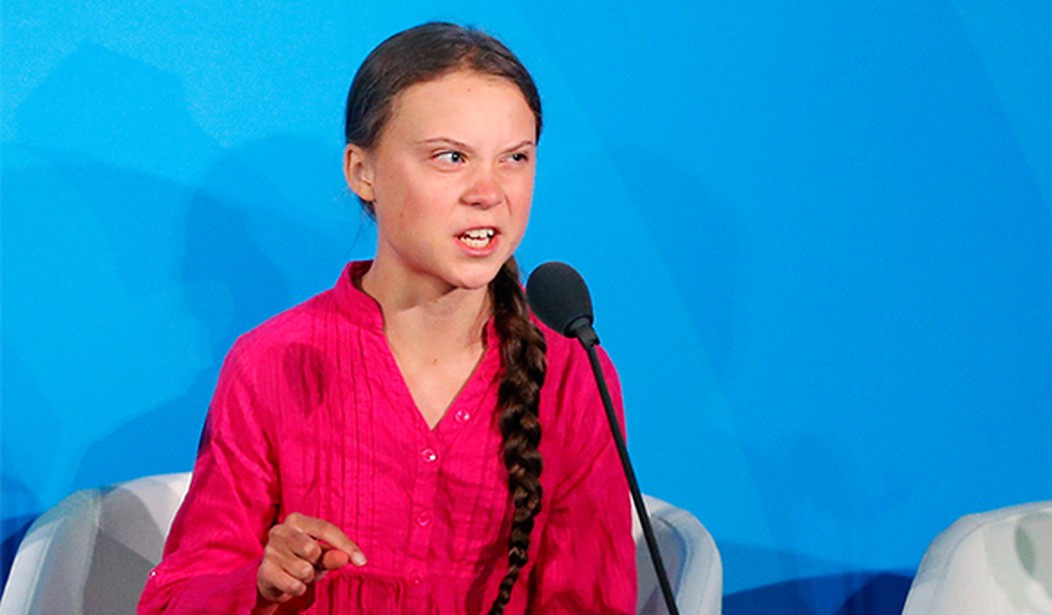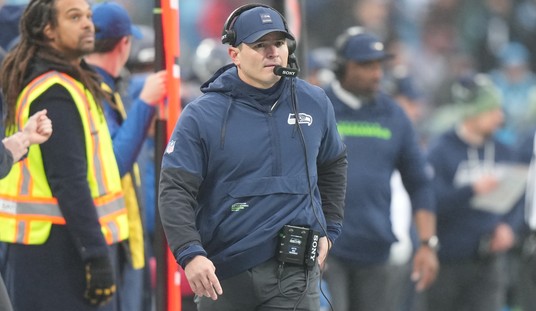Pondering the end of the world turns out to be a 21st-century preoccupation. Doomsday has never seemed nearer than now. “Polls conducted in 2012 across 20 countries found over 14% of people believe the world will end in their lifetime… The general public believed the likeliest cause would be nuclear war, while experts thought it would be artificial intelligence. Only 3% of Britons thought the end would be caused by the Last Judgement.” People who proclaim they “trust the science” are especially sunk in gloom. For example, Greta Thunberg’s message to young people is “you are not going to reach adulthood because of climate change.” Greta famously wrote, “You lied to us. You gave us false hope. You told us that the future was something to look forward to. And the saddest thing is that most children are not even aware of the fate that awaits us.”
In early 2022, Amanda Hess, writing in the New York Times, noted that people were already referring to themselves in the past tense. “A whole lexicon has arisen to attempt to describe its psychological impact: climate nihilism, climate grief, climate melancholia, eco-anxiety, pre-traumatic stress. A global survey of young people, released last year, found that more than half of respondents between the ages of 16 and 25 ‘felt sad, anxious, angry, powerless, helpless, and guilty’ about it, and believed ‘humanity is doomed.’” The reason that even celebrity events felt depressing, Elle magazine explains, is “because the End Times are in full swing… Being alive in the year 2020 means experiencing powerlessness. Australia is burning. Millions of animals are dying. America’s f**k of a president just murdered Iran’s top military leader and is tweeting daily threats about committing war crimes. I feel utterly helpless. I feel guilty for buying a drink at Starbucks knowing that’s $5 I could put toward my heaping student debt.”
For reasons the media can’t fully articulate, the public seems down and not even science can cheer them up. In fact, scientific research is giving them nightmares. In 2008 there were fears that new high-energy particle accelerators then under construction might accidentally create a Black Hole that would swallow the planet. Prestigious scientific organizations lost no time assuring the public that “there is nothing to fear from particles created at the Large Hadron Collider,” but critics noted “that (a) the scientific arguments regarding the risks are so complex that only persons who have devoted many years to particle physics study are competent to understand them, but (b) any such persons, by reason of this huge personal investment, will inevitably be highly biased in favor of the experiments, and also endangered by severe professional censure if they threaten their continuation.” Particle physicists revisiting the issue a few years later concluded that Black Holes could form if “instead of being three dimensional, space actually has more dimensions that are curled into little loops too small to be detected except in a high-energy particle collision.” But we’ve been lucky so far.
A terrible “if” lurking in the heart of the future has replaced the old confident belief in progress. “Modern hope in the future and faith in progress come from nineteenth-century political theories that largely remain with us today. In particular, a school of political thought called progressivism (which gave rise to our modern sense of the term) influenced American educational institutions. Progressivism is steeped in the philosophies of Georg Hegel and Karl Marx, who theorized that history unfolds in certain (progressive) directions and a robust faith in science and technology will aid in that progress.”
Now we fear the opening of a door and breathe out in relief when the monster is not behind it. No longer are we so certain that the Arc of History goes to a good place. Today, experts at the Future of Humanity Institute at the University of Oxford and the Centre for the Study of Existential Risk at the University of Cambridge believe that the greatest threat to human existence is scientific man himself and cite the following as chief dangers:
- Artificial intelligence
- Biotechnology
- Nanotechnology
- Environmental disaster
- Nuclear war
Two of these possibilities, if one excludes Thunberg’s apocalyptic climate fears, are actually in the news nearly daily: the danger that Vladimir Putin might start a nuclear war in Ukraine and the debate over whether Covid-19 may have started as a U.S. government-funded gain-of-function biotechnological experiment in Wuhan, China. A third, artificial intelligence, also figures in a censorial role, as shown in the Twitter Files. David Zweig described how science was used to hide the dangers of science. “In my review of internal files, I found countless instances of tweets labeled as ‘misleading’ or taken down entirely, sometimes triggering account suspensions, simply because they veered from CDC guidance [on Covid] or differed from establishment views.” No wonder we are full of pessimism, doubt, and despair. Perhaps it is coincidental that US life expectancy has fallen to its lowest levels since 1996 due to COVID and drug overdoses, but doomsday, apparently, has got us worried.
These negative developments have precipitated a crisis of belief in the new Western elite religion, effective altruism, which is the process of putting the best and brightest in charge of the money because they are wise. It explains that “our intuitions about doing good don’t usually take into account the scale of the outcomes… But, when trying to do as much good as possible, we aim to give everyone’s interests equal weight, no matter where or when they live.” Instead of being biased by emotional impulses like faith, hope, and charity like stupid people, these fitful urges were far better superseded by smart people using rational criteria like diversity, inclusion, and equity.
But unfortunately, as Dylan Matthews writes in Vox, prominent advocates of effective altruism like Sam Bankman-Fried have ruined the image of enlightened elite leadership. “Like me, Bankman-Fried (‘SBF’ to aficionados) grew up in a college town surrounded by left-leaning intellectuals, including both of his parents. So did his business partner and Alameda Research CEO Caroline Ellison, the child of MIT professors. Like me, they were both drawn to utilitarian philosophy at a young age. Like me, they seemed fascinated by what their privileged position on this planet would enable them to do to help others, and embraced the effective altruism movement as a result. And the choices they made because of this latter deliberation would prove disastrous.”
SBF betrayed the cause; he let the side down. Those unborn trillions, waiting for enlightenment from the only adults in the room, are still waiting. The burden of expertise weighs heavy on Matthews’ shoulders. Now that SBF has queered the pitch, who’s going to save the world? “In the case of the Bankman-Fried foundations, it was… around improving the long-term trajectory of humanity. It seemed like a worthwhile topic before FTX’s collapse — and it still is… Sam’s brother and main political deputy Gabe Bankman-Fried was investing serious capital into a strategy to force an evidently unwilling Congress to appropriate the tens of billions of dollars annually needed to make sure nothing like Covid happens again. Mainstream funders like the MacArthur Foundation had pulled out of nuclear security programs, even as the war in Ukraine made an exchange likelier than it had been in decades, but Bankman-Fried and groups he supported were eager to fill the gap.” Who will take up the White Man’s Burden now?
Perhaps the biggest underreported story of the 2020s is the widespread collapse of institutional trust and the loss of confidence in the inevitability of progress, even among the Western elite. Like frightened children in the dark, we find that we can’t trust the science and can’t trust each other. When a society finds it can’t control the future, what does it do? Can we, like our Neolithic ancestors, face the vastness of reality armed only with the blind intuition that we were meant to be? Or are we too bright for that? Earlier in this century, theoretical physicist Freeman Dyson could still write: “The more I examine the universe and the details of its architecture, the more evidence I find that the universe in some sense must have known we were coming.” Well, we are the people we’ve been waiting for, and everyone who knew we were coming has left the party.
Books: Against the Great Reset: Eighteen Theses Contra the New World Order Kindle Edition by Michael Walsh (editor). In this timely and necessary book, Michael Walsh has gathered trenchant critical perspectives on the Great Reset from eighteen eminent writers and journalists from around the world. Though I wouldn’t exactly consider myself an eminent writer, mine is one of the 18 chapters in this book, and I think it’s worthwhile.
The Song of the Cell: An Exploration of Medicine and the New Human by Siddhartha Mukherjee. The book tells the story of how scientists discovered cells, began to understand them, and are now using that knowledge to create new humans. Told in six parts, it is panoramic but is also intimate, laced with Mukherjee’s own experience as a researcher, doctor and prolific reader.










Join the conversation as a VIP Member